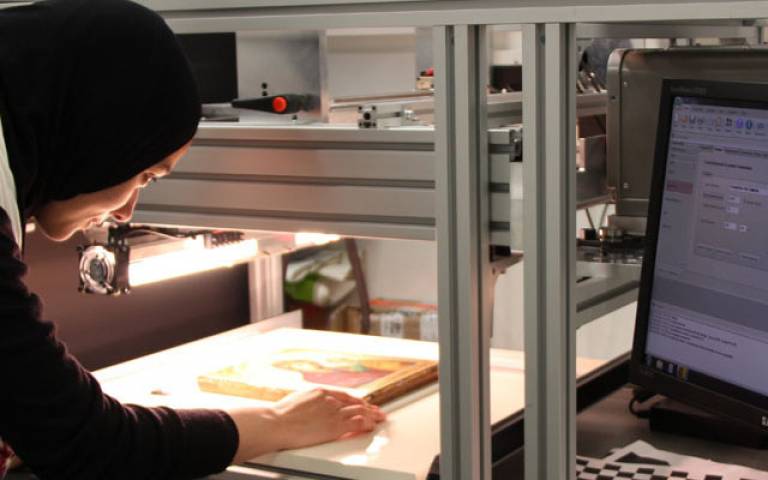Inaugural SEAHA Special Seminar - a great success !
2 August 2016

The SEAHA Special Seminar in Multispectral and Hyperspectral Imaging took place on 30th June 2016 at Wolfson College, University of Oxford.
Over 70 delegates met together for a varied selection of excellent presentations described by one as “one of the best conferences I have been to in the last 5 years. For me personally it could have been even longer”. Organised by David Howell, Head of Heritage Science at Bodleian Libraries, University of Oxford, the event received generous financial support from SEAHA (the Centre for Doctoral Training in Science and Engineering in Arts Heritage and Archaeology), and the Icon Science Group.
Matija Strlic introduced the Keynote speaker, Fenella France, who gave a fantastic and very accessible overview of the imaging being carried out at The Library of Congress. This set the tone of the day and was a great introduction for those not so familiar with the topic.
This was then followed by four presentations introduced by John Delaney by SEAHA students whose subjects ranged from ‘registration’ of images to pigment identification. This impressed one attendee who was ‘blown away by the innovation and skill of new researchers especially’, so Ian, Keats, Hend and Cerys are to be congratulated on contributing so well.
This was followed by a series of talks introduced by David Howell by some of the most experienced practitioners of spectral imaging in the world. And four very different approaches; Roger Easton showing successful results from decades of investigations; David Messinger showing a way ahead using techniques as yet untested in heritage science; Ludo Snijders showing what can be excavated from one set of complex data given enough time, knowledge and perseverance; and John Delaney showing how advanced the imaging is at The National Gallery of Art, Washington, US.
The meeting ended with a panel discussion led excellently by Melissa Terras who managed to encourage a lively but constructive discussion on vocabulary, data sharing, standardisation, cost effective solutions for those not in large institutions, and generally how interested parties could continue to develop and work together.
Feedback after the event was almost universally good, and there was support for holding regular events ‘Excellent speakers, good venue’, ‘I thought the seminar was great! There were great speakers and it brought together a good group of professionals’, ‘I strongly suggest holding this type of meeting once a year or every other year’.
Most people who indicated an opinion would want annual meetings.
Reflecting on the successful event, Keynote speaker Fenella France observed: “It was great to see experienced imaging practitioners and students making great developments, as well as the interest shown by a range of heritage professionals working with cultural heritage materials who were excited about the possibilities offered by spectral imaging; to reveal hidden content; non-invasively characterize pigments and substrates, and track change due to treatments or environment”.
Links
Image: SEAHA student Hend Maghoub scanning a Russian Icon using Hyperspectral imaging system at UCL Heritage Science Lab.
 Close
Close

